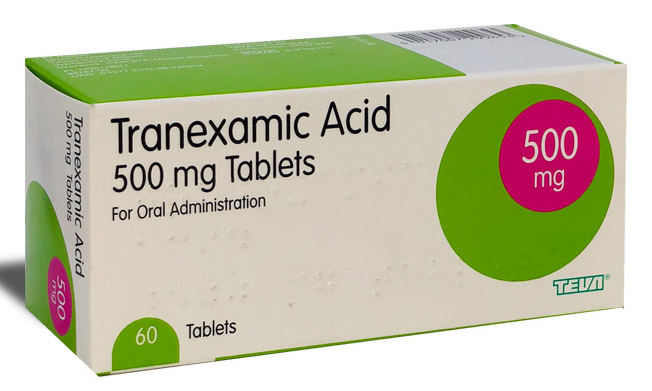Elevated Plasmin Levels In Individuals With Comorbidities A Risk Factor For COVID-19 Susceptibility. Tranexamic Acid Can Help By Targeting Plasmin
Source: COVID-19 And Plasmin Sep 03, 2020 4 years, 7 months, 3 weeks, 2 days, 21 hours, 44 minutes ago
COVID-19 Researchers from the University of Alabama at Birmingham in an attempt to answer a question as to why the SARS-CoV-2 coronavirus more dangerous in individuals with comorbidities have managed to propose a hypothesis that an extracellular protease called
plasmin might be responsible for aiding the accelerating the virus activities at the furin sites. The team also proposed that the widely available and cheap drug called
tranexamic acid can inhibit plasmin production.

The research findings are published in the journal: Physiological Reviews.
https://journals.physiology.org/doi/full/10.1152/physrev.00013.2020
Dr Sadis Matalon, Ph.D., of the University of Alabama at Birmingham and researchers from University of Texas Health Science Centre and University of California San Francisco asked that question in a hypothesis paper published online in the journal Physiological Reviews. This study was made available online in March 2020 ahead of final publication in issue on July 1, 2020.
The researchers reviewed, in detail, research literature for comorbidities like hypertension, diabetes, coronary heart disease, cerebrovascular illness, chronic obstructive pulmonary disease and kidney dysfunction, as well as many viral studies, studies of COVID-19 pathology and clinical presentation, and literature on the life-threatening acute respiratory distress syndrome.
University of Alabama-Birmingham Professor Emeritus Dr Timothy Ness, M.D., Ph.D., posted plans on ClinicalTrials.gov for an exploratory COVID-19 outpatient study to test Matalon's hypothesis and prevent worse clinical outcomes twelve days after the paper was published online.
The study team noted that all those comorbidities featured elevated levels of the extracellular protease plasmin.
Furthermore it was found that plasmin was able to nick proteins at amino acid sequences at furin sites. For many viruses, this nicking at furin sites increases their infectivity.
Interestingly past studies had shown that both SARS and MERS ie the two virulent coronaviruses that are related to the COVID-19 virus "had evolved unusual two-step furin activation for fusion, suggestive of a role during the process of emergence into the human population.”
The study team noted that the SARS-CoV-2 coronavirus also has a furin site on its spike protein, the vital viral protein for viral attachment to a lung cell.
The team proposed that plasmin may cleave that furin site in the spike protein to increase its infectivity and virulence, and they hypothesized that, "the plasmin system may prove a promising therapeutic target for combating COVID-19."
Dr Ness already knew there is an inexpensive, commonly used drug called tranexamic acid, or TXA that targets plasmin by inhibiting its conversion from the inactive precursor, plasminogen, to the active protease, plasmin.
Tranexamic acid is approved by the U.S. Food and Drug Administration for treatment of heavy menstrual bleeding because having lower plasmin levels allows better clotting.
Tranexamic acid or TXA has a long track record of saf
ety and is commonly given off-label. At University of Alabama-Birmingham Hospital, Tranexamic acid is used perioperatively as a standard-of-care for orthopedic and cardiac bypass surgeries; it is commonly used for hemorrhaging trauma patients and also has been used for spinal surgery, neurosurgery and corrective jaw surgeries. It is currently being studied for perioperative use in Cesarean section surgeries.
Dr Ness and the rest of the researchers have started a double-blind clinical study, giving either Tranexamic acid or a placebo pill to COVID-19 outpatients who were recently diagnosed with COVID-19. Patients also receive an anticoagulant. The overall goal of the exploratory study is to assess both safety and efficacy of five days of Tranexamic acid versus placebo in the COVID-19 population. Enrollment for the trial is still is ongoing.
Dr Ness and colleagues hypothesize that the Tranexamic acid treatment will reduce the infectivity and virulence of the virus, as measured by reduced need for hospitalization within a week if a patient's condition deteriorates. Adults 19 years old and older are eligible, and all patients whether in the control group or the Tranexamic acid group receive standard care as directed by their primary caretakers.
Thailand Medical News will provide updates on that trial including early results.
For the latest
COVID-19 Research, keep on logging to Thailand Medical News.
